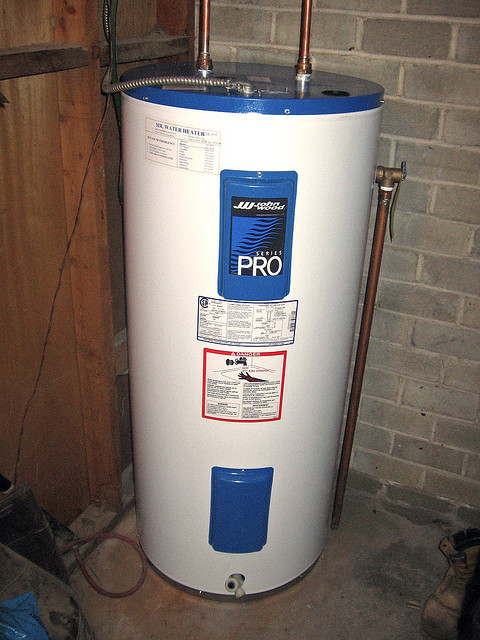Hot Water Tanks - What You Need to Know
Maintaining Your Hot Water Tank
Performing routine checks and maintenance on your hot water tank, whether it is gas, oil or electric, is vital to extending the life and efficiency of the tank and ensuring your safety. The normal life expectancy of a tank is 8 – 12 years. Older tanks have the manufacture date as part of the serial number; however newer tanks have stickers with the date of manufacture clearly stated.
Completely check the tank for any signs of leaks, corrosion, damage and deterioration. Check water lines on top of the unit for leaks and corrosion; also check that the bottom drain valve is not leaking. You should routinely drain the tank and flush out any silt and debris on the bottom of the tank. This will greatly increase the life and efficiency of your tank, especially if you are on a well system.
The area around the tank should be kept clear of debris and combustibles. Air flow is required to help with combustion and the performance of your tank. Visually check the tank’s main components. Check the burner and pilot-light burn pattern and look for signs of corrosion and deterioration and ensure that the flame shields are in place. Air flow to the burner area should not be obstructed.
Next, take a look at the temperature pressure relief valve (TPRV) located on the side of the tank. The TPRV is designed to release any build-up of pressure or temperature. There should be no signs of leakage or corrosion. The TPRV should also be equipped with a down-tube to safely direct any release of hot water and/or steam from hitting you. The TPRV should never be capped. Without the ability to release pressure, your tank will essentially become a ticking bomb.
The vent connector/exhaust pipe on top of the tank should be securely attached with no holes or corrosion. If the vent is not in good condition it could lead to the off gassing of Carbon Monoxide, which can make you ill or at high levels, lead to fatality.
**Please note: When draining a hot water tank you must turn off the power to the unit. This is very important especially with an electric hot water heater. If you don’t turn off the power, you will burn out your elements!**
You should consult a professional plumber if any of the above issues exist or if you have any questions or concerns.
Contributed by Dave Watson, Home Inspector
Canadian Residential Inspections Services, Sherwood Park, AB

